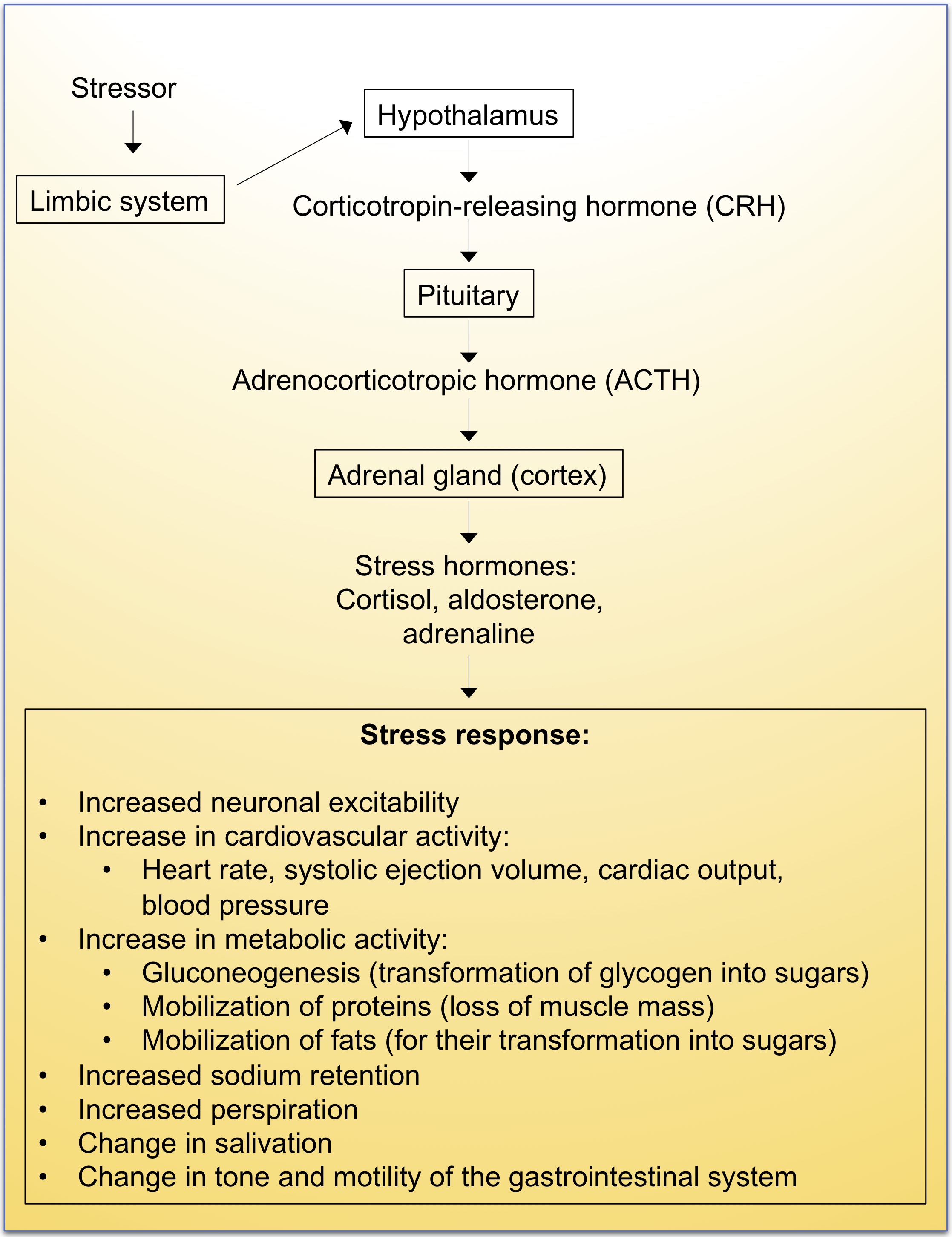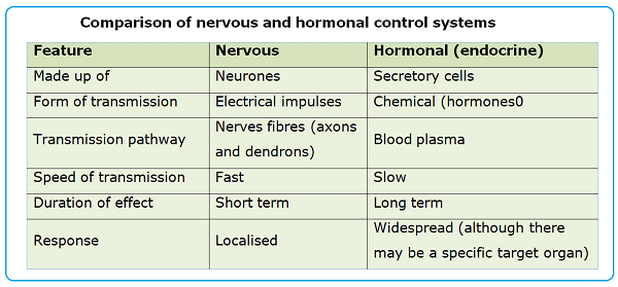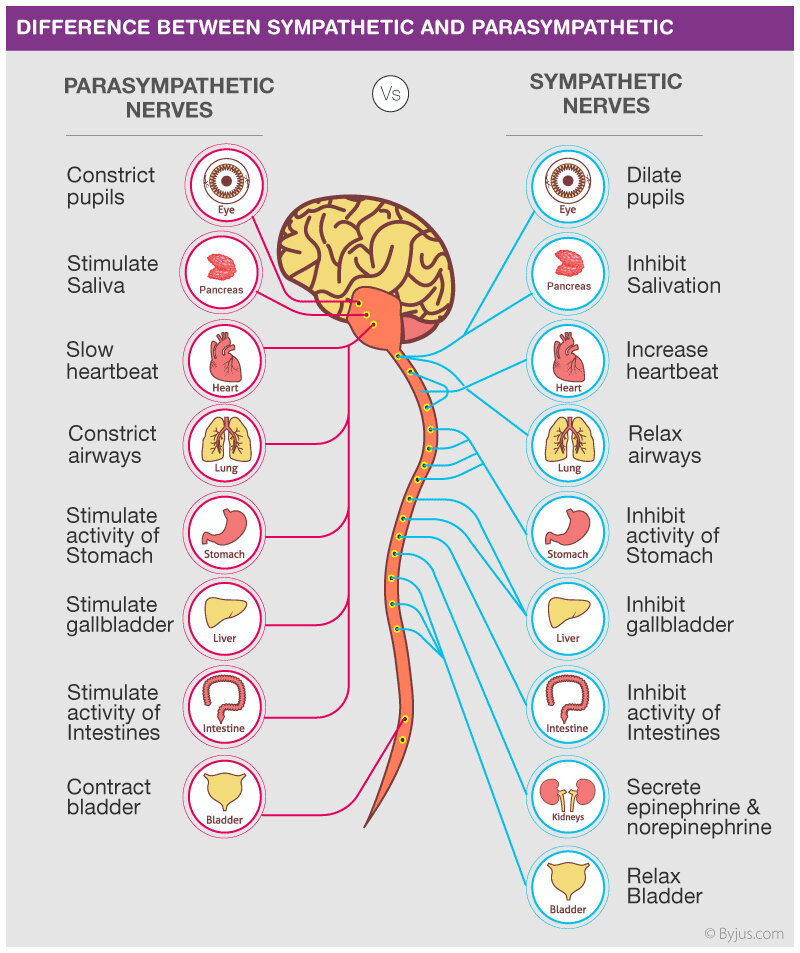Adrenaline Influences Heart Rate in Which of the Following Ways
In the adrenaline glands top of the kidneys Exercise stimulates what. Epinephrine and Heart Rate.
Igcse Biology 2017 2 66 Explain How The Heart Rate Changes During Exercise And Under The Influence Of Adrenaline
By influencing the cells in the SAN nerve impulses and hormones can affect the speed at which.

. Physical stress like emotional stress causes an increased heart rate. A closely related hormone noradrenaline is released mainly from the. Helps in how we respond to stress.
Hence this is another difference between adrenaline and noradrenaline. The current research was designed using Dutton and Arons 1974 study about the misattribution of arousal which aided in formulating the hypotheses. As you age changes in the rate and regularity of your pulse can change and may signify a heart condition or other condition that needs to be addressed.
As muscles demand more energy the sympathetic nervous system increases heart rate blood pressure and breathing. In addition also helps your body do the following. The heart rate and cardiac output however must vary in response to the needs of the bodys cells for oxygen and nutrients under varying conditions.
When we have to carry out fast intense and effective actions we need the blood to circulate at great speed through the body. Adrenaline is a metabolic hormone that has a deep influence on the cardiovascular system. Aside from chronic stress which can expose your body to too much adrenaline an adrenal tumor could be a culprit for having an excess of adrenaline.
The heart is actually one two or three pumps. Which chamber receives blood from the superior and inferior vena cavae. Maximum heart rate calculated by subtracting your age from 220 is your hearts limit during exercise Mayo Clinic says.
The produce hormones that regulate the immune system blood pressure metabolism and the stress response. The right side of the heart pumps tofrom the lungs pulmonary circuit and the left side of the heart pumps tofrom the rest of the body the systemic circuit. Adrenaline in your bloodstream achieves its effects on your heart rate by stimulating the adrenergic receptors on cells throughout your heart tissue.
The heart rate is established by the Sinoatrial Node SAN - the pacemaker of the cardiac muscle. The four effects of adrenaline are the increase in the heart rate and contractility relaxation of breathing tubes increase in blood pressure by vasoconstriction and the increase of the blood sugar levels while the main effect of noradrenaline is vasoconstriction. It is considered a hyperglycemic agent.
Adrenaline is basically a hormone produced by the adrenal medulla. During normal respiration the heart rate tends to slow faintly during inspiration as you take breath in. The channels most likely to be involved are those which contribute to the pacemaker activity and which are affected by β-adrenergic stimulation.
Key actions of adrenaline include increasing the heart rate increasing blood pressure expanding the air passages of the lungs enlarging the pupil in the eye see photo redistributing blood to the muscles and altering the bodys metabolism so as to maximise blood glucose levels primarily for the brain. And exercise or any type of physical exertion is the healthy response as the body and muscles demand increased oxygen levels. Chap 20 assignment questions.
The adrenergic receptors in the heats which increase the rate at which your heart cells work at. The Adrenaline influence the adrenergic receptors on cells via the heart tissue. Once stimulated these receptors pass the fight-or-flight message to a specialized type of protein called a G-protein.
Normal heart rate varies from person to person. There is no theory that connects stress or adrenaline in any way with increased plaque in the major coronary arteries. However in various other parts of the heart adrenaline increases the slow.
They found that exercise is a great way to increase the levels of adrenalin and the heart rate. The adrenal s uprarenal glands are located at the top of both kidneys. One of the main hormones that increases heart rate is epinephrine adrenaline which acts on the bodys cells to cause a cascade of signaling events.
In the absence of any influences the SAN pacing rate would be 100 bpm however heart rate and cardiac output must be able to vary in response to the needs of the body. These receptors forward the critical messages to a particular protein known as G-protein. Yet every study shows that one of the main risk factors for people getting heart disease is severe and chronic emotional physical or psychological stress.
The body eventually works up to a target heart rate for exercise for example a healthy 25-year-old would have a range of 117 to 166 beats per minute bpm. Release of this hormone in the blood in large quantities causes constriction of blood vessels increases blood pressure enhances and speeds up heart rate which in some cases can threaten human health. In order to respond rapidly to changing requirements of the bodys tissues the heart rate and contractility are regulated by the autonomic nervous system hormones and other factors.
4- Increases the heart rate. 5- Inhibits the intestinal functioning. The mind is alerted and even a tired and sleepy person finds strength when adrenaline is pumping through the system.
Adrenaline is a hormone produced by the adrenal glands which affects all types of metabolism. And your target heart rate 50 to 70 percent of your max heart rate for moderate-intensity exercise and. What Symptoms Are Caused by Having Too Much Adrenaline.
Two other types of heart rates maximum heart rate and target heart rate come into play when you get your heart pumping during a workout. The fight-or-flight hormone leads to symptoms of hypoglycemia like a pounding heart tingling sweating dizziness and anxiety. After exercise or during a rest period the parasympathetic nervous system gently.
The adrenaline rush as it is often called feels like a renewed sense of energy. In this way adrenaline attaches to beta receptors to increase heart rate pump more blood better nourish oxygen muscles and make them work harder. THE way in which adrenaline acts on the sinoatrial SA node to accelerate the heart rate has hitherto been obscure.
Knowing yours can be an important heart-health gauge. Promoting proper cardiovascular function. Your heart rate or pulse is the number of times your heart beats per minute.
It is generally thought that the increase in heart rate after β-adrenergic stimulation is caused by modulation of ionic channels located in the surface membrane for review see DiFrancesco 1993. A low blood sugar level triggers the release of adrenaline. Afterward this protein affects other things inside the cell which initiates a cascading alert effect.

The Effects Of Stress On The Heart Observatoire De La Prevention

Hormones Adrenaline Biology Notes For Igcse 2014

Cv Physiology Circulating Catecholamines

The Adrenaline Rush And Everything Else In Your Adrenal Gland Dear Dr Christina
What Is The Science Behind Adrenaline And How Do I Generate More Of It For Me To Use Quora
Re How And Why Does Caffine Effect The Pulse Rate Of A Person

Epinephrine Description Production Function Britannica

The Effect Of Intravenous Adrenaline On Electrocardiographic Changes During Resuscitation In Patients With Initial Pulseless Electrical Activity In Out Of Hospital Cardiac Arrest Sciencedirect

How Adrenaline And Acetylcholine Affect Heart Rate Youtube

Lesson Explainer The Adrenal Glands Nagwa

Pharmacological Effects Of Epinephrine In The Treatment Of Anaphylaxis Download Scientific Diagram

Topic 6 2 The Blood System Amazing World Of Science With Mr Green

Sympathetic Vs Parasympathetic State Chronic Stress Adrenaline Rush Affects Health Tampa Fl Collaborative Therapeutic Services

Epinephrine Ne Heart Rate Altered Blood Flow Glycogenolysis Bronchodilation Youtube



Comments
Post a Comment